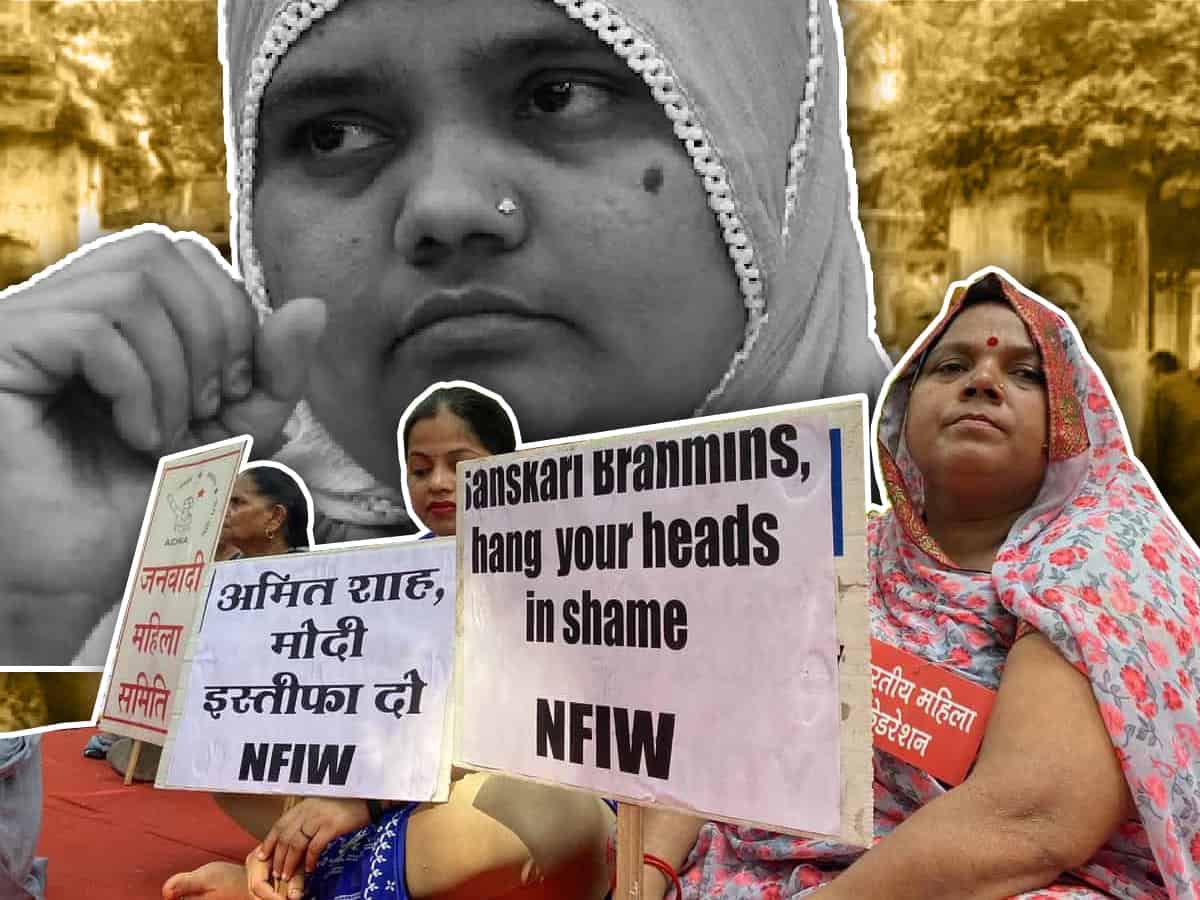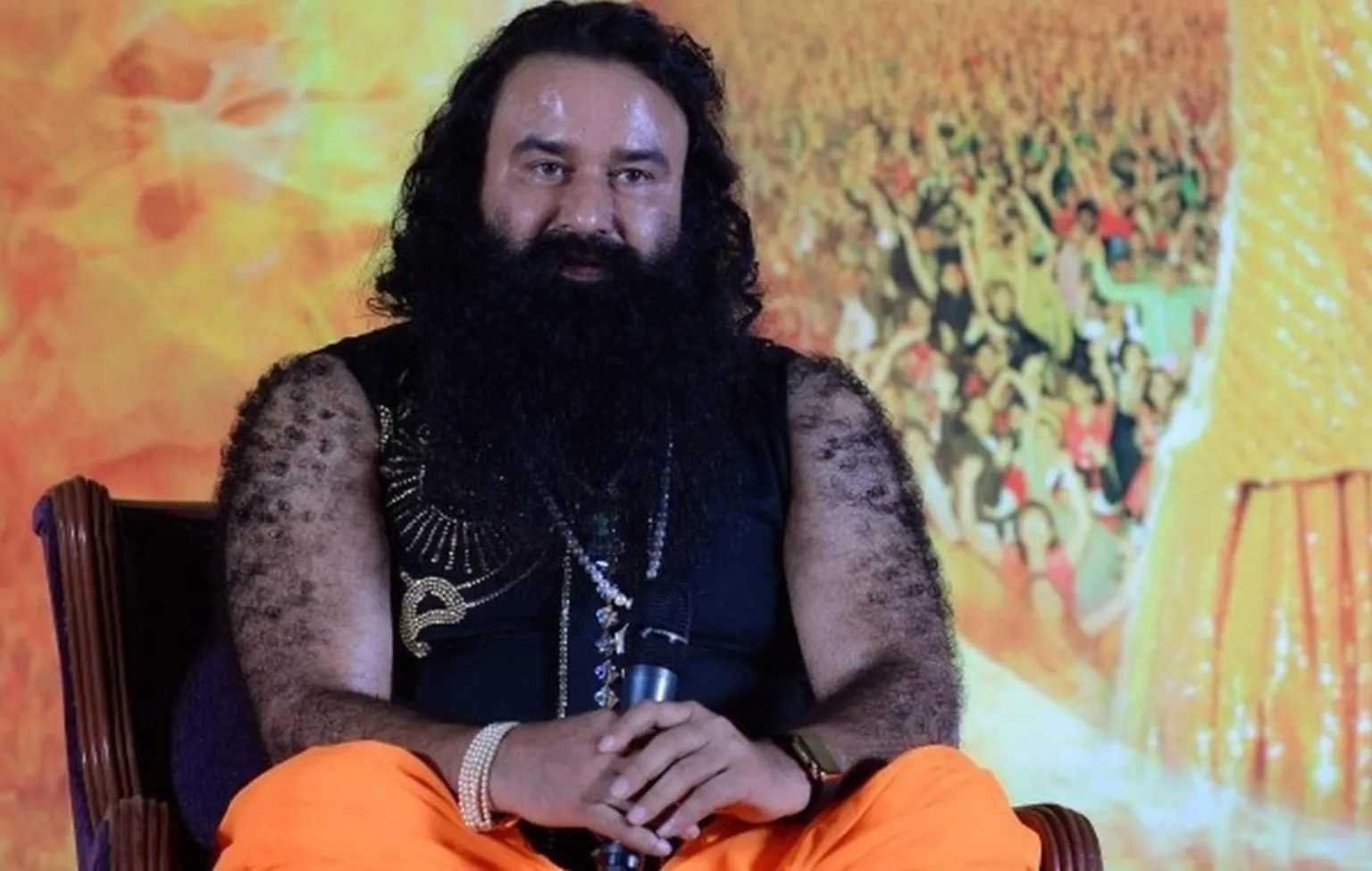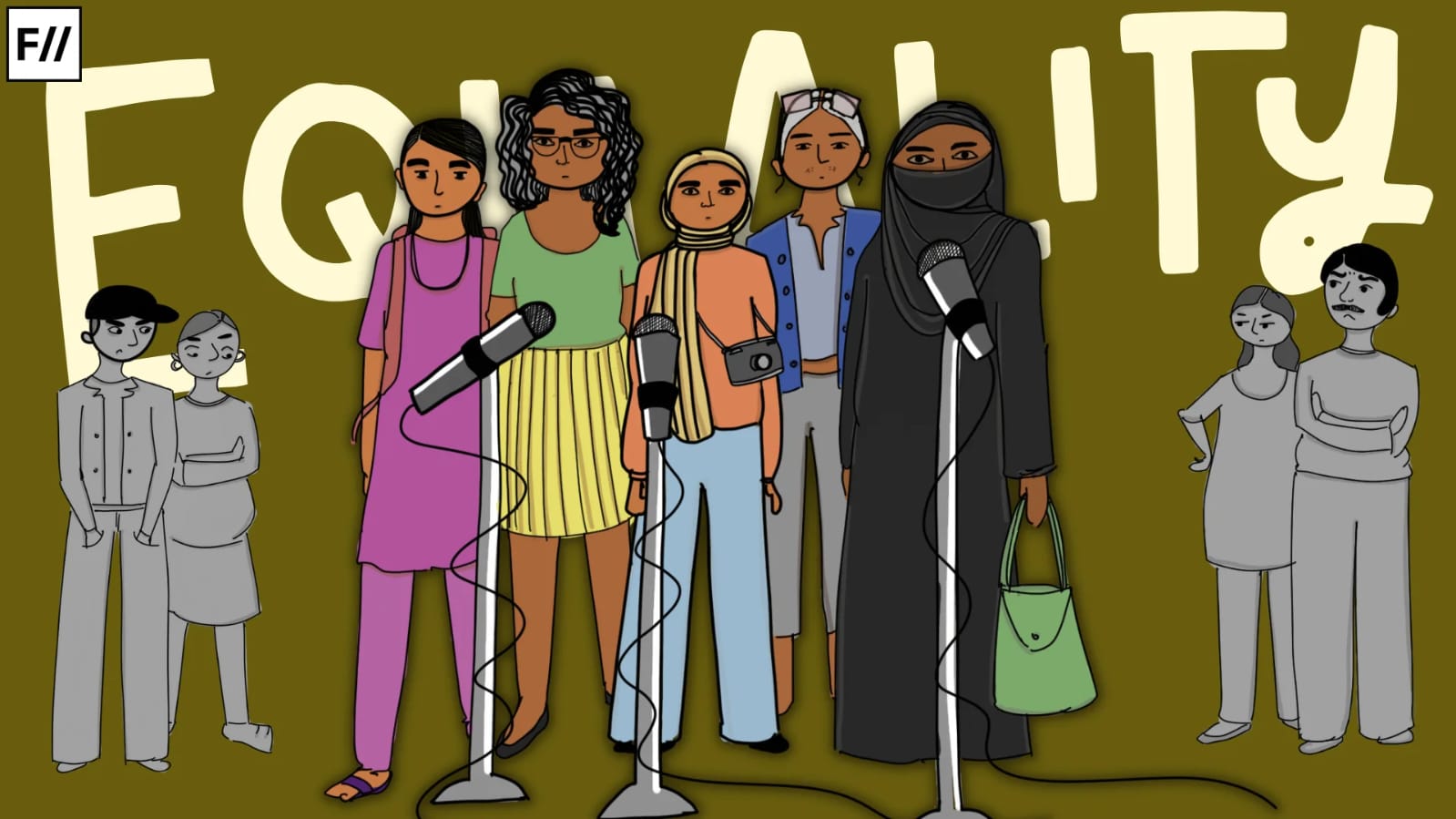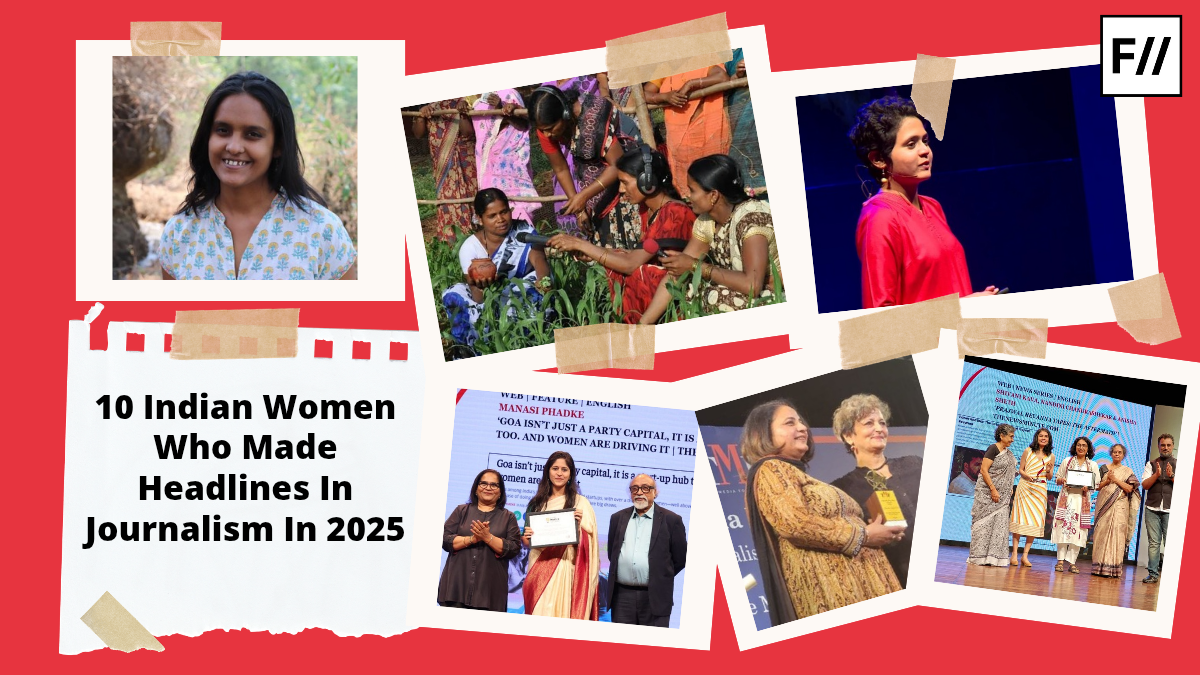Trigger Warning: Rape, Abuse, Violence
Justice Bela M Trivedi recused herself from the hearing of Bilkis Bano’s petition challenging the remission and release of the 11 convicts who raped her in 2002 and murdered seven members of her family. As a result, the case was deferred and will have to be heard by a new bench.
Section 432 of the Indian Constitution mentions the union government’s consent as a prerequisite in cases of premature release of prisoners. The state government emphasised that the decision was made in accordance with its remission policy, which was enacted on July 9, 1992, “as directed by” the Supreme Court, and not “under the circular governing the grant of remission to prisoners as part of the celebration of ‘Azadi Ka Amrit Mahotsav’.
The Bilkis Bano case is one of the most tragic cases of gender-based violence that our nation has ever witnessed. Bilkis Bano, a 21-year-old pregnant woman was gang raped, and her family was butchered during the communal violence that erupted in the aftermath of the Godhra-train burning incident. 13 men were accused of Bilkis Bano’s rape as well as killing her three-year-old daughter. On February 28, 2002, she was escaping her village of Radhikpur in Dahod district after violence erupted in the state following the tragedy at Godhra station, in which the Sabarmati Express was set ablaze, killing pilgrims and kar sewaks returning from Ayodhya.
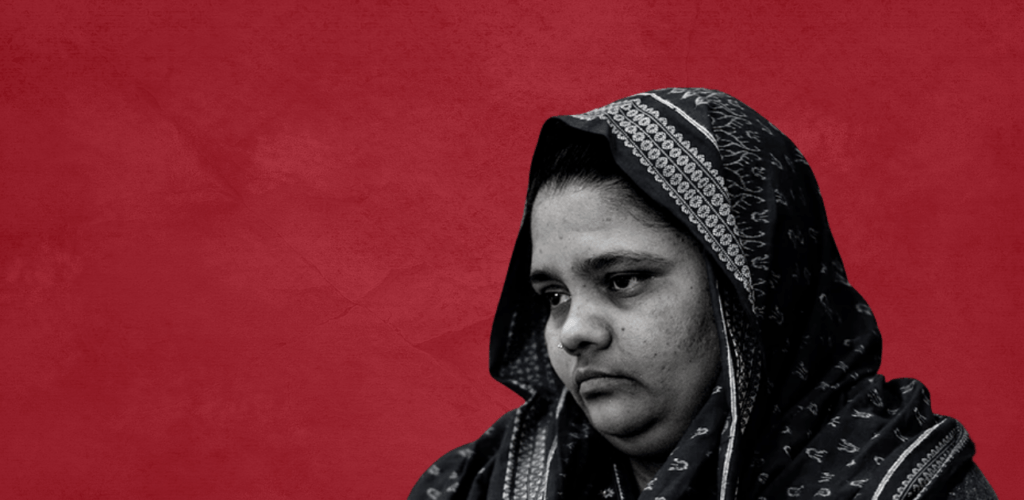
Hindu mobs went on a rampage, assaulting Muslim neighborhoods, after the incident. In almost the course of three days, over 1,000 people were killed, the vast majority of them Muslims. Accompanying Bano was her three-and-a-half-year-old daughter, and 15 other members of her family. In Chapparwad village they were attacked by an armed mob of 20-30 people.
Also read: The Bilkis Bano Case: What Does It Mean For Women When Rapists Walk Free?
The Bilkis Bano investigation began in 2004. The Supreme Court relocated the first riot case from Gujarat to Mumbai as she was receiving death threats. The courts decided that a trial outside of Gujarat would ensure a fair trial. In 2008, a special Central Bureau of Investigation (CBI) convicted 11 of the 13 accused men to life imprisonment on murder and gang rape allegations. The Bombay High Court maintained the conviction in 2017. In 2019, the Supreme Court granted Bano Rs.50 lakhs in compensation. This was a milestone decision as the state saw its first monetary compensation in communal riot cases. However, every 11 of the convicted men walked out of jail and were received with a grand welcome which caused massive outrage on the internet throughout India.
Senior state authorities informed the media that they were considering remission as the prisoners had served 14 years of their life sentences. The release was also awarded based on other factors, like their behavior in prison, age, the extent of their crime, etc. Later it was revealed that the release was approved by the central government. Section 432 of the Indian Constitution mentions the union government’s consent as a prerequisite in cases of premature release of prisoners. The state government emphasised that the decision was made in accordance with its remission policy, which was enacted on July 9, 1992, “as directed by” the Supreme Court, and not “under the circular governing the grant of remission to prisoners as part of the celebration of ‘Azadi Ka Amrit Mahotsav’.
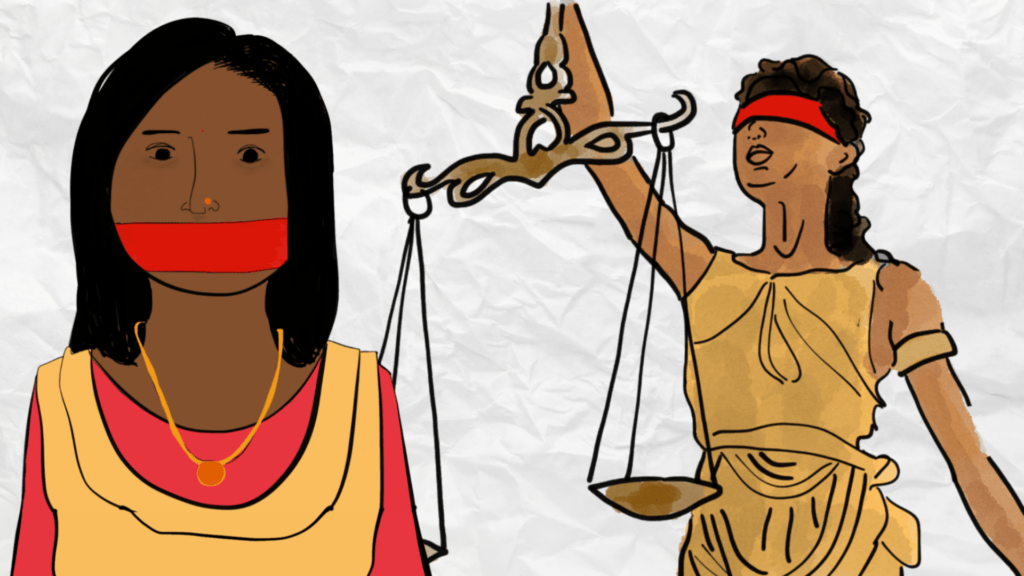
The government-sanctioned release of the accused men stands at the intersection of government-backed marginalisation of religious minorities, justice, and gendered violence. Many activists, politicians, and lawyers filed petitions against the court’s decision. The release forced Bano and her family to relive the trauma that they had been burdened with for more than twenty years.
Also read: Bilkis Bano’s Convicted Rapists Released, Welcomed With Garlands
She said, “The decision to once again stand up and knock on the doors of justice was not easy for me. For a long time, after the men who destroyed my entire family and my life were released, I was simply numb. I was paralysed with shock and with fear for my children, my daughters, and above all, paralysed by the loss of hope.” She challenged the remission decision of the court by filing a writ petition. She also filed a review petition against the Supreme Court’s May judgment, which permitted the Gujarat government to use the 1992 Remission Policy in the case. Finally, the Supreme Court was supposed to hear the petition of Bilkis Bano on December 13, 2022.
The hearing bench was formed by Justice Ajay Rastogi and Bela M. Trivedi. Today, Justice Trivedi, who was also the Law Secretary of the Gujarat Government 2004-2006, recused herself from hearing Bilkis Bano’s petition. The case will now be heard by a different bench. The cause for the recusal remains undisclosed. The bench, however, stated that the Supreme Court has already taken cognizance of the motion for an urgent hearing. Justice Rastogi asked the case to be listed before a bench that does not involve any of them.
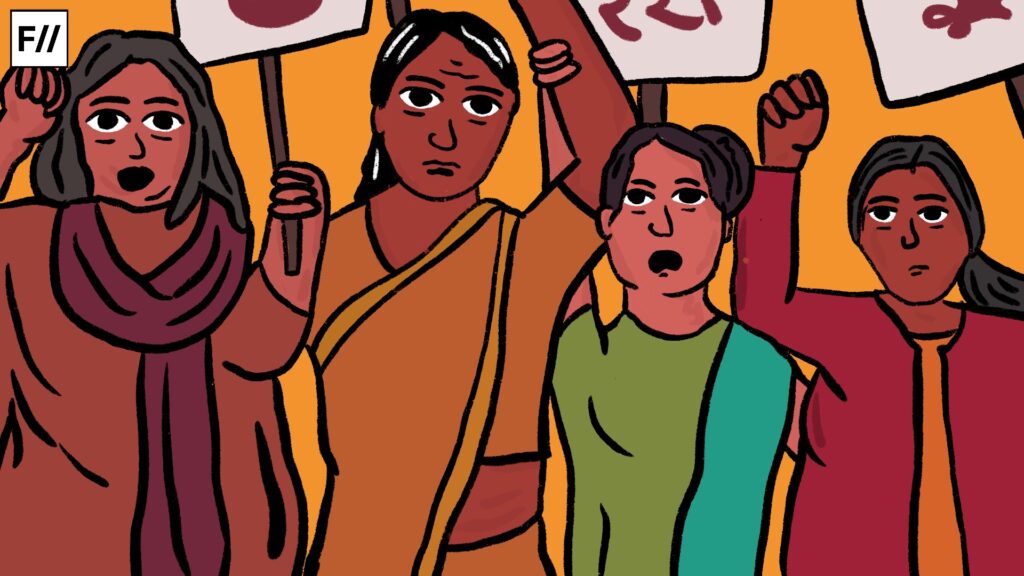
It was a bench led by Justice Rastogi which had decided that the remission request fell under the purview of the Gujarat government as the incident took place in Gujarat. The Gujarat High Court’s view that the remission needs to be handled by the Mumbai High Court was dismissed by Justice Rastogi. Another review petition filed by Bilkis Bano also remains pending in the Supreme Court.
Religious violence is often permeated through a woman’s body, mostly by dishonoring them, with the aim to further dishonor their caste and religion. A woman’s body, therefore, becomes a site of violence as witnessed during partition, and any communal riot or pogrom that has erupted in the history of India and worldwide. Taking away the justice she deserves is evidently the action of a Hindutva propagating government that plays the role of an oppressor. Narendra Modi, who was the chief minister of Gujarat at the time, was criticised for not taking steps to avoid the riot. Many people have been convicted for their roles in the riots over the years, although several high-profile suspects have been granted bail or have been exonerated by higher courts.
Also read: Why Bilkis Bano’s Struggle For Victory Matters
Similarly, the assaulters walking free based on their “good behavior” and the BJP ministers who support the rapists getting re-elected is a major oppressor/oppressed hegemonic powerplay, where the communal government disapproves of the punishment of Hindu men based on oppressing a Muslim woman.
About the author(s)
Simantini Sarkar is a student, writer, and feminist, as well as a literature and film enthusiast. She has completed her Bachelor’s degree from Bethune College, Kolkata, and her M.A. in English from Savitribai Phule Pune University. She writes for various online and offline magazines and is a budding translator. Simantini is also an aspiring research student. Her interests include topics
related to gender, women, politics, and pop culture.
